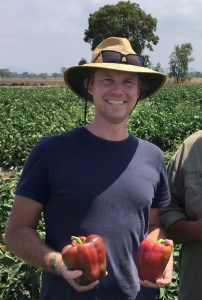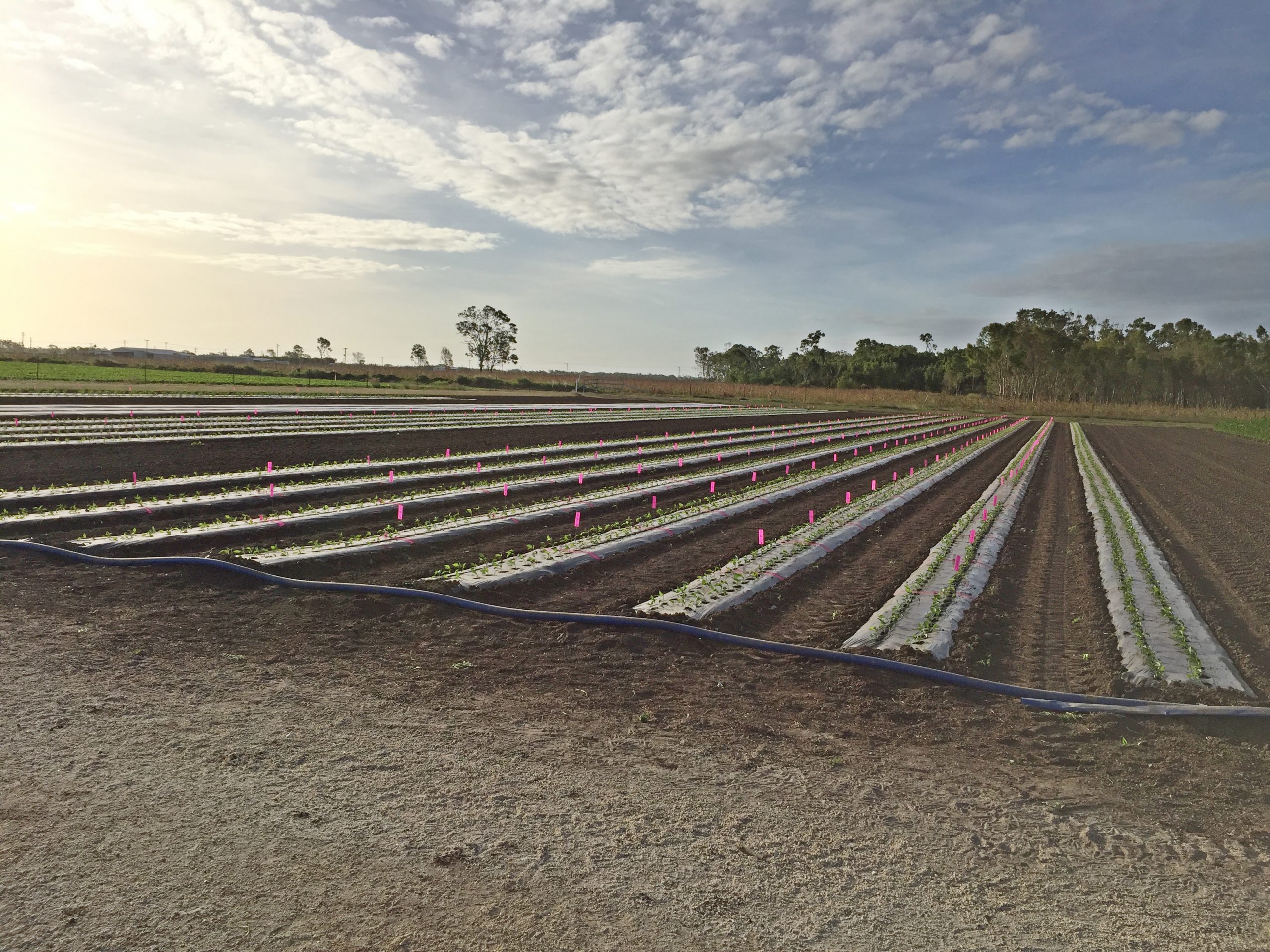Attention veg growers: Can you help new varieties come to life?
In this ‘Ask the industry’ column, Syngenta Product Development Specialist – Open Field Solanaceae Adam Thomas discusses the benefits for vegetable growers who collaborate with their seed companies to conduct on-farm variety trials.
In many ways, the release of new vegetable seed varieties in Australia has been more ‘steady evolution’ than ‘revolution’. Seeds companies like Syngenta always strive to introduce ‘blockbuster varieties’. Huge advances are not always possible, but our incremental gains consistently deliver genuine benefits for growers.
For those who are willing and able to collaborate on a trial site – working with a seed company as part of a national development program – there are significant advantages.
Seeing and comparing new varieties side-by-side in the pipeline can give an important commercial edge in adopting improved varieties earlier.
Having trials on local soil types, growing them under local conditions and within regionally relevant crop rotations can provide valuable information for co-operators as to how these varieties will fit into their cropping systems.
Collaborating with growers is a win-win for us too. It’s important to have a large trial and testing network so we can assess information over a wide area finding where to best position a variety and how our products are going to perform before the customer receives them. This ensures that our partners can have confidence in the variety at every step of the supply chain.
The Syngenta Vegetable Seeds Variety Development Program would not be possible without the co-operation of growers who are prepared to contribute sites and assist with management of trials on their properties.

Trial thinking
For growers contemplating variety trials, here are some things to consider:
- Good communication between grower and the seeds company is essential to facilitate effective co-ordination of trials.
- Once seeds or seedling plants are ready to go, they need to be planted or transplanted in coordination with the grower’s planting schedule.
- Field trial placement is critical. Things to take into account when offering a trial site and good practice when planting a trial include:
- Positioning the trial on or close to a headland or road to ensure easy visibility, access and monitoring.
- Avoid low-lying areas of the farm to minimise the risk of trials being waterlogged and reduce the potential for disease.
- Use of open surroundings away from buildings or trees will ensure better light and airflow and tend to make for good sites.
- The trial position should be in the middle rows (or as close to) with buffer plots alongside to avoid added variability from too much sun, wind, dust or machinery exposure.
- Before you start, be aware of your commitment, i.e. the size of the trial including number of varieties, plot sizes and any replications.
- After planting, the trial area will be largely in the hands of the grower with monitoring and assessment by the seed company at certain stages of crop development and at optimal maturity for evaluation.
- When quality and yield assessments are required the grower will be notified and communicated the results or best performing varieties to keep an eye on.
Further information
Growers should also be aware of the GMO status of the seeds company.
All vegetable varieties presently marketed by Syngenta Australia and New Zealand have been created using traditional breeding methods, without the use of genetic modification techniques leading to genetically modified organisms as defined in Directive 2001/18/EC.
The methods used in the development and maintenance of our varieties are aimed at achieving high purity standards and avoiding the presence of off-types, including genetically modified organisms.
Please contact us if you would like more information about hosting a Syngenta trial.
Find out more
For more information or to ask a question, please contact your local Syngenta Territory Manager, the Syngenta Advice Line on 1800 067 108, visit syngenta.com.au or email Vegetables Australia: info@ausveg.com.au. Please note that your questions may be published.
The R&D content for this article has been provided to Vegetables Australia to educate Australian vegetable growers about the most relevant and practical information on crop protection technologies and their on-farm applications.

